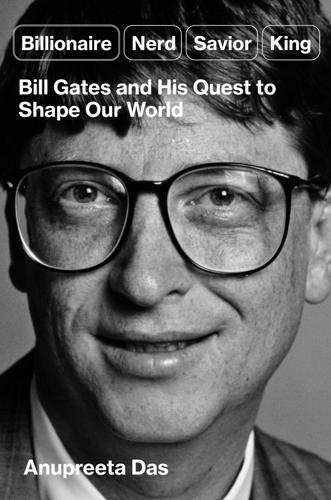
Billionaire, Nerd, Savior, King: Bill Gates and His Quest to Shape Our World
by
Anupreeta Das
Published 12 Aug 2024
David Friedman, who cofounded Wealth-X, a platform that sells data to companies that target the ultrawealthy, said that when the Giving Pledge was announced and a lot of people committed to it, they didn’t really think about the implementation side of things. As a result, Friedman said, the Giving Pledge is “basically stalled.” Signatories of the pledge whose donations can be tracked appear to have given much of their money to traditional causes, including university endowments and research, rather than toward big transformative social change. Some of the richest Americans, including Bezos, Ballmer, Page, and Brin, had sidestepped the Giving Pledge as of 2023, although each engages in some philanthropy.
…
Twenty-five years older than Gates, Buffett introduced him to the philanthropic ideas of Andrew Carnegie, the nineteenth-century steel magnate and another of the era’s robber barons. One of the most significant outcomes of their philanthropic partnership was the Giving Pledge, an unusual and highly publicized effort in 2010 by the two men, along with French Gates, to get other billionaires thinking about charitable giving. Billionaires who took the pledge committed to give at least half of their wealth to philanthropy, either during their lifetimes or at death. Coming as it did right after the 2008 financial crisis, the Giving Pledge was morally compelling—America’s wealthiest wanted to give back to society. But it was also a nonbinding commitment, effectively impossible to enforce or track, and in the end, perhaps little more than a showcase for a billionaire’s generous intentions.
…
“The explanations recorded remain within a realm of what signatories may consider a socially desirable account of their generosity,” Hans Peter Schmitz and Elena M. McCollim write in their 2021 study of the Giving Pledge letters.16 The authors call it a tale of good intentions with no ability for others to follow through on whether anything has been delivered. In the more than thirteen years since the Giving Pledge was launched with much fanfare, the public conversation around economic inequality has only become more trenchant and the exponential increase in billionaire wealth has come in for particular scrutiny.
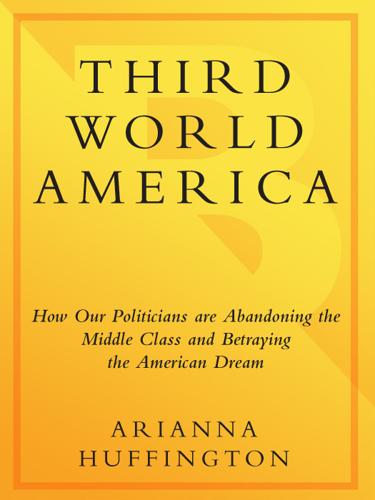
Third World America: How Our Politicians Are Abandoning the Middle Class and Betraying the American Dream
by
Arianna Huffington
Published 7 Sep 2010
And it would be great if more of America’s super affluent—the wealthiest 1 percent, who hold 35 percent of the nation’s wealth—also tapped into their reserves of empathy and acted on Andrew Carnegie’s assertion that “he who dies rich dies disgraced.”172, 173 That’s a sentiment that Bill Gates and Warren Buffett clearly share. The pair has launched The Giving Pledge, a campaign to convince the world’s billionaires to give at least 50 percent of their money away.174 Buffett has promised to give 99 percent of his roughly $46 billion to charity; Gates has made a similar pledge.175 And others are starting to join in, including Michael Bloomberg, who, echoing Carnegie, says: “I am a big believer in giving it all away and have always said that the best financial planning ends with bouncing the check to the undertaker.”176 If The Giving Pledge catches on, Gates and Buffett believe they can generate $600 billion for philanthropic causes.177 At the tail end of the last Gilded Age, the opulently rich—men like Andrew Carnegie, Cornelius Vanderbilt, John D.
…
William Domhoff, “Wealth, Income, and Power,” Apr. 2010, www.sociology.usc.edu/whorulesamerica. 174 The pair has launched The Giving Pledge: Carol J. Loomis, “The $600 Billion Challenge,” 16 Jun. 2010, www.fortune.cnn.com. 175 Buffett has promised to give: Warren Buffett, “My Philanthropic Pledge,” 16 Jun. 2010, www.fortune.cnn.com. 176 And others are starting to join in: Dakin Campbell and Katya Kazakina, “Broad, Bloomberg Back Buffett Call for Billionaire Donations,” 17 Jun. 2010, www.bloomberg.com. 177 If The Giving Pledge catches on: Carol J. Loomis, “The $600 Billion Challenge,” 16 Jun. 2010, www.fortune.cnn.com. 178 As Frederick Douglass put it: W.
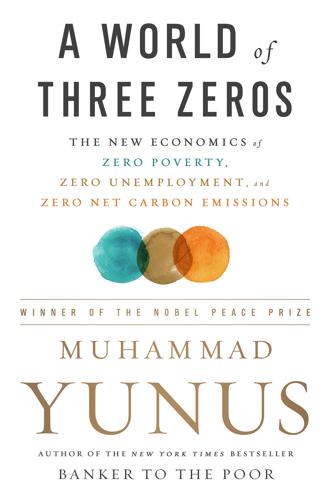
A World of Three Zeros: The New Economics of Zero Poverty, Zero Unemployment, and Zero Carbon Emissions
by
Muhammad Yunus
Published 25 Sep 2017
I hear you objecting, “How can we persuade those eight people at the top of the pyramid to give away so much of their incredible wealth?” Surprisingly, that’s not an issue. We don’t need to persuade them. They have already decided to do it! All eight of have signed the Giving Pledge, by which they promise to give away half of their wealth for charity after their death. These eight people are among the many billionaires around the world who have signed the Giving Pledge. (As of mid-2016, the number had surpassed 150, with more signatories continuing to join the list.)3 One of the eight wealthiest billionaires is Mark Zuckerberg, the founder and CEO of Facebook. In 2015, when his first child, a daughter named Max, was born, Zuckerberg issued a public statement announcing plans to make a charitable donation of 99 percent of his Facebook shares—the vast bulk of his personal wealth.
…
The statement was accompanied by a filing with the Securities and Exchange Commission making the gift official. What was Zuckerberg’s reason for doing this? He gave a clear explanation: he wanted to use his money to help create a better world for his daughter, rather than leaving her a world suffering from terrible human problems.4 The existence of the Giving Pledge, and its popularity among the world’s wealthiest, is a healthy sign. Now all we have to do is to convince them that at least a portion of this money should be used for social business. If they agree, there will be endless money for all the social businesses we can create in the world. The money so invested will never disappear; instead it will keep on circulating and growing as social businesses expand and multiply.
…
The following discussion of legal consideration in reforming the world’s economic system is adapted in part from Muhammad Yunus, “How Legal Steps Can Help to Pave the Way to Ending Poverty,” Human Rights Magazine, Winter 2008, http://www.americanbar.org/publications/human_rights_magazine_home/human_rights_vol35_2008/human_rights_winter2008/hr_winter08_yunus.html. 2. “Retail Florist License,” Louisiana Horticulture Commission, http://www.ldaf.state.la.us/consumers/horticulture-programs/louisiana-horticulture-commission/. 3. The Giving Pledge, https://givingpledge.org. 4. Kerry A. Dolan, “Mark Zuckerberg Announces Birth of Baby Girl & Plan to Donate 99% of His Facebook Stock,” Forbes, December 1, 2015, https://www.forbes.com/sites/kerryadolan/2015/12/01/mark-zuckerberg-announces-birth-of-baby-girl-plan-to-donate-99-of-his-facebook-stock/#16d43dc218f5. 5.
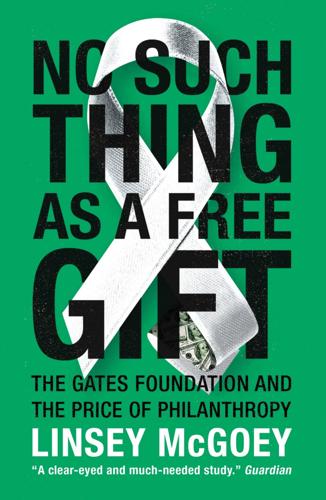
No Such Thing as a Free Gift: The Gates Foundation and the Price of Philanthropy
by
Linsey McGoey
Published 14 Apr 2015
To rein in the Kochs you must be willing to rein in Gates. Or Soros. Or Buffett. Or Zuckerberg. Another reason for focusing on Gates and his foundation is that no other public figure has been more influential in shifting the global discourse on philanthropy in recent decades. Through initiatives like the Giving Pledge – Gates and Buffett’s exhortation to their fellow billionaires to give at least 50 per cent of their fortunes to charity – Gates offers a powerful antidote to the mushrooming legions of economic doomsayers who suggest that growing wealth gaps are the biggest threat to global sustainability today.
…
You’re simply lubricating future sales’.7 Until he married Melinda, Gates had been a small player in philanthropy, criticized by the general public and fellow billionaires for his perceived stinginess. In 1997, the US broadcasting mogul Ted Turner publicly chided Gates for not donating enough of his personal fortune to charity – just as today Gates and Buffett chastise fellow billionaires for their reluctance to sign the Giving Pledge, a commitment to donating at least half of one’s wealth during one’s lifetime. Things changed dramatically in 2000, when the Gates Library Foundation merged with the William H. Gates Foundation and was renamed the Bill and Melinda Gates Foundation. The amount of money Gates pledged to the new foundation made the endowments of his early foundations seem like small change.
…
Index Africa: and African markets, 216–9, 222; agricultural challenges in, 216–7, 221–2; and Alliance for a Green Revolution in Africa, 217, 218; and the Alliance for Food Sovereignty in Africa, 228; and Coca-Cola, 222–3; and diseases, 190–1, 223–4; economic infrastructures in, 39, 170–1; and genetically modified maize, 218–9; Ghana, 1–3, 5, 21, 150, 170–1; and Monsanto, 206, 216–9, 221–2; and M-PESA bill-pay system, 81–2; Uganda, 14, 219, 228; and World Food Programme’s Purchase for Progress, 208; and World Health Organization, 226 African Americans: and education, 10, 54; and schools established by Rosenwald, 118; as source of labour for industrialists, 46–7; and students’ gap in test scores, 138; and voting rights, 45 Allen, Paul, 181–3 altruism, 48, 90, 146 American Legislative Exchange Council, 131–2, 200 Apotex, 103–4 Apple, 143, 246 Argentina, 188–9 Ashoka, 66, 68, 72 Asia: and Coca-Cola, 222–3; and World Food Programme’s Purchase for Progress, 208; and World Health Organization, 226 Balsillie, Jim, 106–7, 245 Band, Doug, 29–32 Barefoot College, 67, 68 Barkan, Joanne, 128, 139, 140, 144 Bastiat, Frédéric, 198, 200 Baudelaire, Charles, 12–13, 14 Berkshire Hathaway, 8, 173–4, 215 Bishop, Matthew, 6, 7, 8, 111 Bloomberg, Michael, 127–8 Boldrin, Michele, 199–200 Bourdieu, Pierre, 19–20, 65 Brazil, 17, 96, 221 Broad Foundation, 9, 122, 139 Buffett, Howard, 216, 221 Buffett, Warren: and Berkshire Hathaway, 173, 216; and Coca-Cola, 173, 222; as a donor to African farming programmes, 216; and Gates Foundation, 8, 173, 174; and the Giving Pledge, 24, 117; and Goldman Sachs, 215; and philanthropy, 24, 26, 146 Bush, George H. W., 33, 116 Bush, Jeb, 132–3 Bzdak, Michael, 97 Canada: and Americans’ buying prescription drugs, 199; and Coca-Cola, 223; and company Research in Motion, 106; mining industry scandals in, 33; mortgage market of, 171; and spending on global health issues, 154 Cargill: and consolidation, 209; and CEO Greg Page, 210, 212; as a food supplier, 204; and grain and poultry exports, 208; and profits from price hikes, 210; and TechnoServe, 227 Carnegie, Andrew: and admiration for Republicans, 49–50; and admiration for writings of Spencer, 48; and application of business techniques to philanthropy, 15, 95; as benefactor of the Tuskegee Institute, 10; and Carnegie Library, 55; as a domestic steel manufacturer, 45, 49; and duty to accumulate wealth, 47, 48; and establishment of public libraries, 10, 118; first Wealth essay of, 10, 11, 44–5, 46, 51; and idea that his wealth would be workers’ wealth, 42–4; and income inequality, 48–9; labour policies of, 43–4; and philanthropic giving, 44, 56, 110; and philanthropy, 11, 14, 27–8, 41–50, 111; and reversal of policy of increasing wages, 44, 50; and skill of private individual as investor in community, 46, 47; steel fortune of, 42–4; and trade tariffs, 49–50; and unionization, 43; and vision of public access to goods, 58; Wealth essays of, 41, 47; and workers’ strike at Homestead Plant, 43–4 Carnegie Steel, 43 Center for Effective Philanthropy, 89, 99 Centre for International Governance, 106–7 Chan, Margaret, 226–7 charter schools: and Agora Charter School, 130; and Duncan’s policies, 139; and exploitation by corporations, 123; and Gates Foundation, 118; and film Waiting for Superman, 125–6; and Harlem Children’s Zone, 127, 128; and ideas of Budde and Shanker, 123; increased resources of, 124–5; lottery system for placement in, 125–6; and low-performing students, 124–5; and MATCH schools, 126; and Michigan’s schools, 133; and operating on a for-profit basis, 131; performance and quality of, 124–5; and philanthropy, 127; and reforms championed by Gates and Broad, 139; and scarcity of choices, 124; and special needs students, 125; and virtual charter schools in Maine, 132; and Washington, DC schools, 125 Children’s Investment Fund Foundation, 99–101 China, 17, 212, 219 Cipla, 189–91 Clinton, Bill, 245; and benefits from philanthropy, 31; and business-oriented approach to philanthropy, 8; and Doug Band, 29–32; and Frank Guistra, 34–5; and publicizing campaign contributions, 35; and Teneo company, 32; and treatment of South Africa and other nations, 188, 189; and trip to Kazakhstan, 34 Clinton Foundation, 30–2 Coca-Cola: and African sales, 223; boycott of, 227; Buffett as largest investor in, 173–4, 222; and donations to World Health Organization, 226; Gates Foundation, 173, 174, 222, 227–9; and Jorge Casimiro, 226; lobbying efforts of, 26–7, 225; and sales in the US and Canada, 223 Cohen, Myron, 196–7 Davos, Switzerland, 8, 30, 64, 86, 243 de Tocqueville, Alexis, 110, 237 diseases: and cancer, 149, 164, 165, 201, 202, 224; cholera, 2; and chronic diseases, 223–4; and DPT vaccines, 158; and drug-resistant strains, 192–3; eradication of, 157–61, 207; eradication versus control efforts for, 157–61; germ theory of, 4–5; and heart disease, 224; Hepatitis C, 202; HIV/AIDS, 7, 34, 102, 108, 153–4, 188–93; hookworm, 150; immunization programmes against, 158–61; and infectious diseases, 223–4; malaria, 7, 149, 153, 157, 160, 193, 223; measles, 5, 158, 160, 173; and non-communicable diseases, 223; and philanthropic spending, 15; polio, 5, 149, 150, 154–60, 173; in poor countries, 69–70, 159; and risk of vaccines for HPV, measles and other diseases, 164; smallpox, 155, 158; syphilis, 150; thalassaemia major, 103; tuberculosis, 149, 157, 193, 223; World Health Organization’s allocations for, 224; yellow fever, 5, 150, 151 Dorfman, Aaron, 174–5, 234 Dowie, Mark, 229, 230 Drayton, Bill, 66, 68–9 drugs: Cervarix, 161; and clinical trials, 167–9; deferiprone, 103–4; and Eli Lilly’s Prozac, 104–5; and GlaxoSmithKline’s Paxil, 105; and Glivec, 165; and HIV drugs, 189–96; and Merck’s Gardasil, 161, 163–4; Nexavar, 201; and patented drugs, 187, 191, 202; Vioxx, 161 DuBois, W.
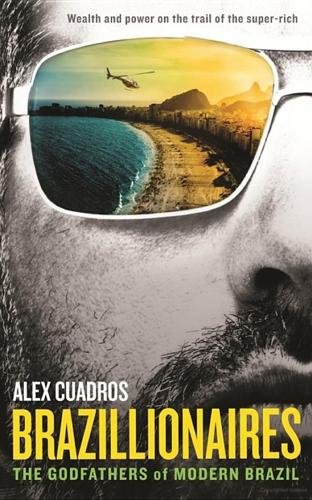
Brazillionaires: The Godfathers of Modern Brazil
by
Alex Cuadros
Published 1 Jun 2016
Philanthropy can do real good, and government can make bad spending decisions, but as the German shipping magnate Peter Kramer put it, “These guys have so much power through their wealth that they, instead of the government elected by the people, can decide what’s good and what should be promoted and subsidized.” He was talking about the people who signed the Giving Pledge. Whatever the contradictions, Lemann hasn’t signed the Giving Pledge. For all his meritocratic symbolism, he apparently plans to leave most of his fortune to his six children. Along with Telles’s and Sicupira’s heirs, they’ve received training from a young age in the art of managing great inheritances. LEMANN COMMENTED RECENTLY ON the inequality debate.
…
That’s when you get into vanity projects, like when Jeff Bezos, the founder of Amazon, put down a quarter-billion dollars for The Washington Post. That was still just one percent of his wealth. You can burn through far more with philanthropy. Bill Gates has the Gates Foundation, Warren Buffett has the Giving Pledge. Mike Bloomberg has given more than a billion dollars to Johns Hopkins University. In the ladder of luxuries, art occupies a rung up near philanthropy. Purchasing art confers a patina of status and culture for money made in unsexy sectors like cement or packaged foods. Anyone with a little bit of money can buy a Louis Vuitton handbag, of which thousands are manufactured each year.
…
When I asked Lemann’s people what was bigger—his charitable giving, or the taxes he avoids by putting 3G’s funds in the Cayman Islands—they refused to answer. Working at Bloomberg, I saw how polarizing philanthropy can be. For every person who believes that it fills in where government falls short, there’s another who finds it deeply annoying. I never got so many inflamed comments as when I wrote about the Giving Pledge. Warren Buffett teamed up with Bill Gates to create the pledge in 2010, and whenever a new batch of billionaires signed up to give away at least half their wealth, I got a flood of emails from readers calling them fakes and narcissists. I heard their charity called legal tax evasion. There’s something to this.
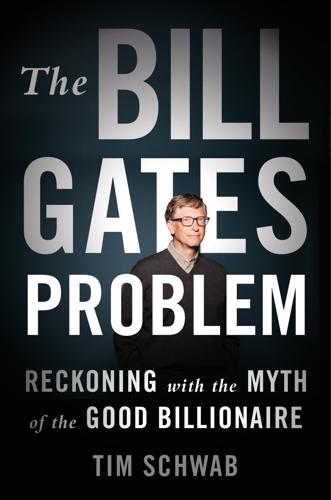
The Bill Gates Problem: Reckoning With the Myth of the Good Billionaire
by
Tim Schwab
Published 13 Nov 2023
Twenty years into Gates’s grand experiment in philanthropy, we are long overdue for a reappraisal of the world’s most powerful humanitarian, especially as a new generation of tech billionaires begins to follow in his footsteps. Jeff Bezos and his ex-spouse, MacKenzie Scott, have both pledged to give away most of their fortunes, more than $150 billion combined. Mark Zuckerberg has made similar claims, as have hundreds of other super-wealthy signatories to the “Giving Pledge” the Gates Foundation created to expand billionaire philanthropy. Counterintuitive as it sounds, the prospect of hundreds of billions—or even trillions—of dollars in philanthropic spending coming down the pike is cause not for celebration but, rather, for concern. In the same way that the global elite use campaign contributions and lobbying to influence politics, philanthropy has become one more tool of influence in the billionaire’s toolbox.
…
Here are the names of just a few: the Bill & Melinda Gates Foundation, the Bill & Melinda Gates Foundation Trust, the Bill & Melinda Gates Medical Research Institute, Gates Ag One, bgC3, Gates Ventures, Pivotal Ventures, Breakthrough Energy, Gates Policy Initiative, Exemplars in Global Health, the Giving Pledge, Global Grand Challenges, the Global Good Fund. Working at turns through their private wealth and through the foundation’s endowment, the Gates family has a great number of vehicles at their disposal to advance their agenda. The size and complexity of the foundation and Bill Gates’s broader empire is very much a part of the lack of transparency.
…
Industrialist and philanthropist Andrew Carnegie built thousands of libraries, many of which still stand today and carry his legacy. The bridges, parkways, and parks Robert Moses built indelibly changed New York, and some still bear his name. So, where is Bill Gates’s big accomplishment? Microsoft Windows? A collection of exaggerated claims around the lives he has saved, undergirded by research he funded? The “Giving Pledge,” his bullying effort to push more of his billionaire peers into philanthropy? Gavi, his complex procurement mechanism that, essentially, fund-raises money from governments to buy vaccines from Pfizer? Gates needs to eradicate polio to rationalize all the wind and swagger he’s brought to his charitable work, to substantiate the endless claims and promises he’s made about curing disease.
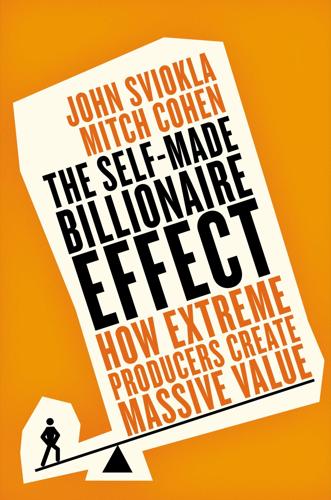
The Self-Made Billionaire Effect: How Extreme Producers Create Massive Value
by
John Sviokla
and
Mitch Cohen
Published 30 Dec 2014
Billionaires in particular are easy targets for such accusations. While we make no claims about their universal purity, as a group the businesses launched by the self-made billionaires in our sample lean toward the socially responsible end of the scale in their industries. Furthermore, a large number of self-made billionaires have signed the Giving Pledge, promising to give away more than half of their net worth; a significant portion are active in philanthropy or social projects. Overnight Success It may seem that certain individuals form companies and suddenly enter the public consciousness with a meteorically successful product, but the reality is that many self-made billionaires reach extreme success only after many years of professional investment and commitment to a particular market space.
…
When we asked DeJoria how he would describe what he does compared with what his Performers do, he explained the relationship using an initiative he funds called Grow Appalachia as an example. Grow Appalachia is a project funded by the Peace, Love & Happiness Foundation that DeJoria started as a vehicle for his philanthropic giving (DeJoria has also taken the Giving Pledge, a commitment by the world’s wealthiest people to give away large portions of their wealth in their lifetimes). The origins of the project date to 2009 when DeJoria decided to examine the range of philanthropic activity he engaged in. “Here in the United States we’re doing all kinds of things from saving the whales, to saving water, to helping the homeless become employed,” he told us.
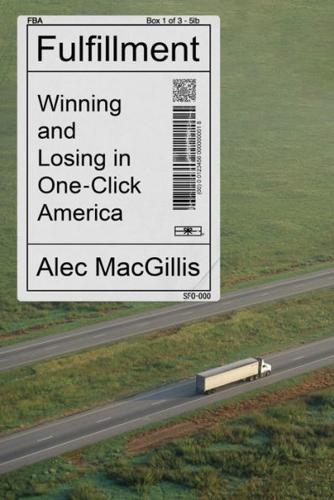
Fulfillment: Winning and Losing in One-Click America
by
Alec MacGillis
Published 16 Mar 2021
It was, noted the writer Anand Giridharadas, “an extreme idea of the right to make money in any which way, and an extreme idea of the obligation to give back,” one that rejected the notion that “the poor might not need so much help had they been better paid.” As the top federal income tax rate dropped late in the twentieth century and in the first decade of the twenty-first, and as the nation’s biggest fortunes ballooned in size, the cachet of philanthropy only grew. In 2010, Bill and Melinda Gates and Warren Buffett launched the Giving Pledge, urging the very wealthiest to agree to give away at least half their money. Much of the giving was going to far-from-needy institutions, such as Harvard and Stanford, which were each eventually receiving more than $1 billion over the course of a single year on an ongoing basis. As giving grew, so did its cost to the government: by 2013, taxpayers were writing off more than $40 billion annually, and the wealthiest were benefiting the most, since they were deducting income that would otherwise be taxed at the highest marginal rate.
…
As giving grew, so did its cost to the government: by 2013, taxpayers were writing off more than $40 billion annually, and the wealthiest were benefiting the most, since they were deducting income that would otherwise be taxed at the highest marginal rate. Among the signatories of the Giving Pledge was David Rubenstein, the billionaire Carlyle Group cofounder. In recent years, he had outdone many other large-scale philanthropists with a series of high-profile gestures in Washington. He spent $21.3 million on a 710-year-old copy of the Magna Carta, which he loaned to the National Archives; later, he paid for a $13.5 million gallery to house the document.
…
Shelter The poorest households in the state: Gene Balk, “Seattle Taxes Ranked Most Unfair in Washington—a State Among the Harshest on the Poor Nationwide,” The Seattle Times, April 13, 2018. “an extreme idea of the right to make money”: Anand Giridharadas, Winners Take All: The Elite Charade of Changing the World (New York: Knopf, 2018), 163. Among the signatories of the Giving Pledge was David Rubenstein: This and the remainder of this section from MacGillis, “The Billionaires’ Loophole,” The New Yorker, March 7, 2016. The housing market … was “straight-up crazy”: Mike Rosenberg, “Seattle’s Median Home Price Hits Record: $700,000, Double 5 Years Ago,” The Seattle Times, April 6, 2017.
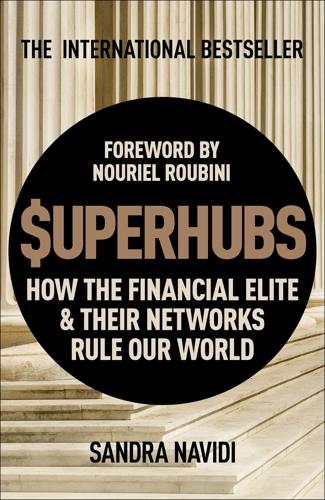
SUPERHUBS: How the Financial Elite and Their Networks Rule Our World
by
Sandra Navidi
Published 24 Jan 2017
Dalio showed great foresight when he warned of the financial crisis well in advance and throughout it outperformed the market when many other funds faltered. Like many successful billionaire money managers, he is not primarily motivated by money, and unlike most of them, he lives rather modestly. Bridgewater’s offices are located near his home in Westport, Connecticut, surrounded by old trees and lush bushes. He recently joined the Giving Pledge started by Bill Gates and Warren Buffett, committing at least half his fortune to philanthropic causes. What Dalio lacks in material pretensions, he makes up for in intellectual ones. He does not want to be seen as merely a speculator or trader, but instead—driven by the desire to make a social impact—as a philosopher and educator, explaining how the world works to make it a better place.
…
Anglo-Saxon financiers are ideally positioned to optimize the efficiency of philanthropy by applying their financial and business savvy, a strategy that Matthew Bishop and Michael Green have coined “philan-throcapitalism.”10 For the wealthy, it is a social must to commit and give to a cause. This was how Bill Gates reeled in Warren Buffett and a few dozen other billionaires to join him in the “Giving Pledge” and donate at least half of their fortune to charitable causes. Many of them sit on the same boards of hospitals, museums, opera houses, ballet companies, and educational institutions, where they use their friendships and connections to attract donors and raise top dollars. The galas they host combine serious causes with lighthearted entertainment—replete with star wattage, glamour, and media exposure.
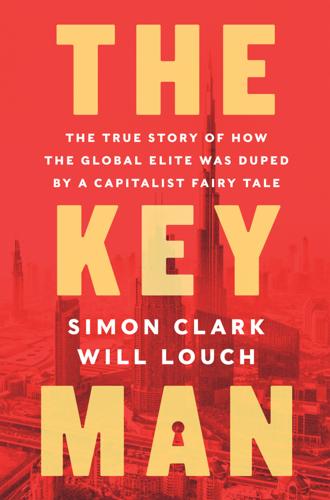
The Key Man: The True Story of How the Global Elite Was Duped by a Capitalist Fairy Tale
by
Simon Clark
and
Will Louch
Published 14 Jul 2021
In 2000, the family started the Bill & Melinda Gates Foundation, the world’s largest private charitable organization. A few years later, Warren Buffett, a constant companion to Bill at the top of rich lists, announced he was giving most of his fortune to the Gates Foundation. Bill and Warren also founded the Giving Pledge to encourage other billionaires to give away at least half their wealth. Healthcare was at the heart of Bill and Melinda’s mission. “Our work is based on the simple idea that every person, no matter where they live, should have the opportunity to lead a healthy and productive life,” Bill explained in a lecture in honor of Mandela after the statesman died.
…
Maria explained that Arif’s irate response to straightforward questions raised her suspicions that something was seriously wrong. Philippe told her to investigate and not to be deterred by Arif’s complaints. Back at the Gates Foundation more executives gathered to discuss how to respond. Arif was a self-proclaimed philanthropist, a signatory of the Giving Pledge, and an important partner in Bill Gates’s quest to build a better world. Was he really a fraudster and a thief? Andrew’s bosses agreed he should amp up the pressure on Arif and get to the bottom of the problem. Andrew asked Abraaj for more information. “Please provide the actual bank statements from all banks in which all of the contributed funds have been held from November 24, 2016, to November 30, 2017, showing all transactions,” he wrote.
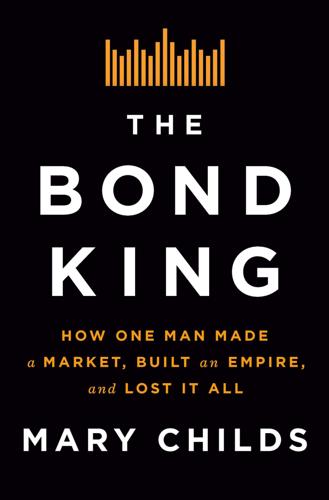
The Bond King: How One Man Made a Market, Built an Empire, and Lost It All
by
Mary Childs
Published 15 Mar 2022
“Icahn should leave #Apple alone & spend more time like Bill Gates,” Gross tweeted on October 24. “If #Icahn’s so smart, use it to help people not yourself.” Icahn took the bait. “To Bill Gross @PIMCO,” he tweeted on October 28, “If you really want to do good, why not join givingpledge.org like Gates, I and many others have?” Icahn and Gates had both committed to the Giving Pledge, promising to give away more than half of their wealth by the end of their lives. Two days later, Gross went on CNBC. He and Sue would give away all their money before they died, he said, in what he referred to as an “Andrew Carnegie” pledge. “Sue and I are well on our way,” Gross said. Already they’d put almost $300 million in a family foundation, but to date, they’d been quiet about their other modest giving.
…
She barred Bill and Amy from coming within five yards of the neighbors (except when they were on their own property) and banned them from playing music (above sixty decibels) outside their home when no one was in the backyard pool area. She tossed Gross’s claim of harassment. Gross said in a statement that though he was “disappointed in the outcome,” he would abide by the terms of the decision. That month, a press release went out announcing that Bill Gross had signed the Giving Pledge. He’s had time for one more reinvention. After four years of dating, he and Amy got married, in April 2021, in a small ceremony in Indian Wells, overlooking the Vintage Club golf course awash in bright desert sunlight. They were surrounded by a small group of family and friends and giant vases bursting with white roses.
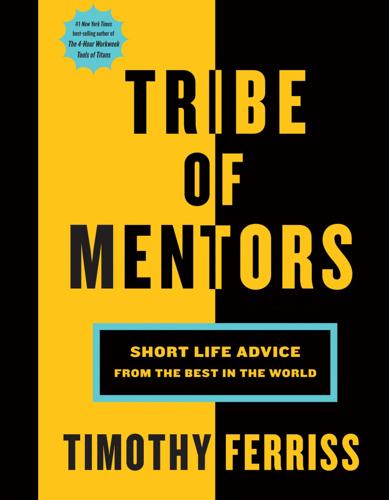
Tribe of Mentors: Short Life Advice From the Best in the World
by
Timothy Ferriss
Published 14 Jun 2017
Ray Dalio TW: @RayDalio bridgewater.com RAY DALIO is the founder, chair, and co–chief investment officer at Bridgewater Associates, a global leader in institutional portfolio management and the largest hedge fund in the world ($150+ billion). Bridgewater is known for its culture of “radical transparency,” which includes encouraging dissent, openly airing disagreements, and recording all meetings. His estimated net worth is nearly $17 billion. Along with Bill Gates and Warren Buffett, Ray has signed “The Giving Pledge,” committing half of his net wealth to charity over the course of his lifetime. He has created the Dalio Foundation to channel his philanthropic contributions. Ray has appeared on the Time 100 list of the “Most Influential People in the World,” as well as the Bloomberg Markets list of the “50 Most Influential People.”
…
At its peak, nearly half of Internet users in the United States used AOL. Steve is the author of the New York Times best-selling book The Third Wave: An Entrepreneur’s Vision of the Future. Steve is also chairman of the Case Foundation, which he established with his wife, Jean, in 1997. In 2010, Steve and Jean joined The Giving Pledge and publicly reaffirmed their commitment to give away the majority of their wealth to philanthropic causes. * * * What is the book (or books) you’ve given most as a gift, and why? Or what are one to three books that have greatly influenced your life? The Third Wave by futurist Alvin Toffler had an enormous impact on my life.
…
See also Diet dangers of, 488 genetic algorithm cooking, 94 gratitude for, 260–61 in handling overwhelm/lack of focus, 264 in humanitarian efforts, 263 vegetables, 118 when traveling, 521–22 Ford, Henry, 265, 266, 416, 417 Forge, 101 Forleo, Marie, 451–54 Foursquare, 250 Frankl, Viktor, 23, 561 Fraser, Mathew, 425–27 Frat Pack, 136 Freedom, 81, 241, 344, 370, 378, 380, 484, 538 Freedom app, 99, 485 Fried, Jason, 203–9 Friedman, Tom, 349 FriXion pen, 438 Fussman, Cal, 358 Future Publishing, 407 G Gable, Dan, 156, 392–94 Gaiman, Neil, 410–11 Galef, Julia, 163–66 Gall, John, 206 Gallwey, W. Timothy, 563 Gandhi, Mahatma, 207 Gates, Bill, 10, 59, 178, 321, 446 Gervais, Michael, 412–15 GitHub, 103 The Giving Pledge, 321, 345 Gleason, Jackie, 359 Global Business Network, 332 Goals, 4, 12, 98, 291, 314, 344, 427, 432, 444, 522 Godfrey, Arthur, 359 Goenka, S. N., 559 Goethe, Johann Wolfgang von, 124 Golden State Warriors, 280 Goldman, Bob, 316–17 Goldman, William, 135 Goodman, T. R., 8 Goodreads, 101 Good Ventures, 82 Google, 92, 101, 221, 401 Google Scholar, 149 Gordon-Levitt, Joseph, 147–50 Gracián, Baltasar, 436 Grandin, Temple, 416–17 GrapeStory, 259 Gratitude for food, 260–61 as habit to improve life, 169–70 shift in perspective from, 531 at small pleasures, 144 and struggle, 128 Gratitude journal, 499 Gratitude lists, 484, 485 Green Tea Lotus parfum, 87 Greg Norman Company, 283 Gregorek, Aniela, 113, 117, 121–26 Gregorek, Jerzy, 113–21 Gretzky, Wayne, 14, 346 Grounding, 184, 264, 496 Growbot, 101 Grylls, Bear, 229–31 Guber, Peter, 280–82 Gunther, John, 418 H Hackworth, David, 292 Hamburg, John, 328 Hanks, Tom, 146 Happiness, 125, 511–13, 525, 555 bliss vs., 16 as choice, 33 with decisions, 173 and desire, 32–33 and fame, 150 and gratitude, 499 as honoring gift of life, 66 inner, 270 with life right now, 377 and presence, 493 setting up life for, 12 from spending, 337 and suffering, 32, 33 Happy Body Program, 113, 121 Harari, Itzik, 556 Harari, Yuval Noah, 554–60 Harris, Deborah, 556 Harris, Sam, 41, 365–67 Harris, Tristan, 213 Hart, Kevin, 96 Harvard Business School Social Enterprise Initiative, 324 Harvill Secker, 556 Hatfield, Fred, 315 Hawk, Tony, 298–99 Hawk Clothing, 298 Headspace app, 177 Hearos Xtreme Protection NRR 33 earplugs, 145–46 HeartMath Inner Balance biofeedback monitor, 190 Heart rate variability (HRV) breathing, 189, 190, 198, 430 Heller, Steven, 24 Hemingway, Ernest, 540 Hendrix, Harville, 354 Hewlett-Packard, 228 HICCup, 243 HighFive.com, 204 Hill, Faith, 464 Hillel, Rabbi, 476 Hitchens, Christopher, 375 HITRECORD, 147–49 Hobonichi Techo, 500 Hoffer, Eric, 204 Holmes, Anna, 141–44 Holz, Fedor, 265–67 Home gym, 538 Hormone replacement therapy (HRT), 515–16 Host Defense MyCommunity mushroom complex, 1 Houston, Drew, 455–58 Hubbard, Elbert, 533 Huffington, Arianna, 211–14 The Huffington Post, 211 HumanCharger, 488 Humanitarianism, 262–63 Hunt, Helen LaKelly, 354 I IBM, 64 IDEO.org, 324 IGN, 407 Imagine Media, 407 Imago Dialogue, 354 iMask Sleep Eye Mask, 520 IMDb, 86 Incase City Collection backpack, 137 Insight Meditation Society, 272 International Economic Institutions: Globalism vs.
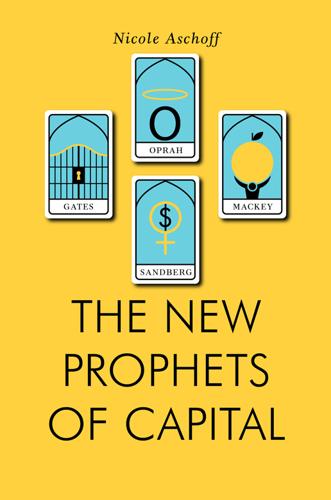
The New Prophets of Capital
by
Nicole Aschoff
Published 10 Mar 2015
Since its founding in 1997, the Gates Foundation has transformed the medical and research fields for diseases like malaria and pneumonia and is at the center of an education reform movement in the United States. The Gates’s recent efforts to publicize philanthropy, and their ability to leverage their wealth for social change, are encouraging other billionaires to commit to the Giving Pledge to donate the majority of their wealth to charitable causes. The transformation of Bill Gates’s image over the past two decades is remarkable. Gates, the ruthless, greedy monopolist, caricatured by Tim Robbins in the 2001 film Antitrust, has been supplanted by the earnest, humble Bill, a “worldwide force for good.”1 Melinda Gates, the other half of the foundation, is a shyer Samaritan, but is equally influential in shaping the foundation’s trajectory.
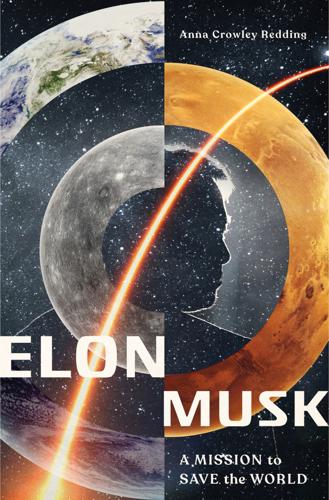
Elon Musk: A Mission to Save the World
by
Anna Crowley Redding
Published 1 Jul 2019
Whether painting a grand vision for the bigger picture of Tesla’s mission or delving into technical detail, his delivery developed a special Elon signature, a combination of confidence, technical knowledge, and unbridled enthusiasm. The performance was a far cry from the school days when he was tormented by bullies and struggled to make friends. In April 2012, Elon Musk joined some of the wealthiest people in the world and signed the Giving Pledge, a commitment to use most of your wealth for giving back. The idea started two years earlier when a group of forty billionaire philanthropists, led by Bill and Melinda Gates and Warren Buffet, decided to inspire the ultrarich to give more, give sooner, and give smarter. More than 183 of the world’s wealthiest individuals and couples have signed the pledge.
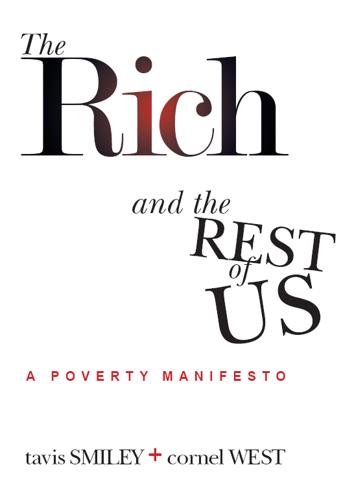
The Rich and the Rest of Us
by
Tavis Smiley
Published 15 Feb 2012
Yet, Buffett wrote, the rich actually paid a lower percentage (from 29.2 percent in 1992 to 21.5 percent in 2008) on their taxable income: “These and other blessings are showered upon us by legislators in Washington who feel compelled to protect us, much as if we were spotted owls or some other endangered species. It’s nice to have friends in high places.” Microsoft mogul Bill Gates and other members of the “Giving Pledge”—where billionaires like Buffett have committed to give most of their wealth to philanthropy—should be applauded. Buffett, however, is one of the few who demonstrates compassion by challenging government to restructure tax laws that benefit folk like him, the richest of the rich. A RENAISSANCE OF COMPASSION How can we fulfill Walter Rauschenbusch’s call for “justice for all, service to others, and a love that liberates” in the troubling 21st century?
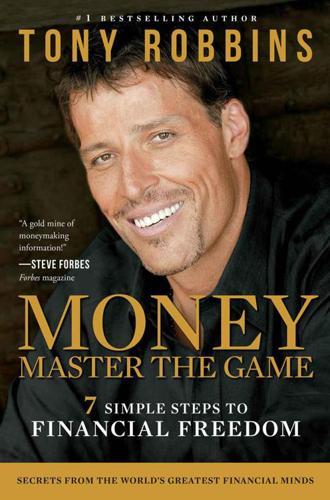
MONEY Master the Game: 7 Simple Steps to Financial Freedom
by
Tony Robbins
Published 18 Nov 2014
Ray had masterfully and graciously provided a game-changing recipe that would impact the lives of millions of Americans. Do you realize the level of generosity this man provided both you and me that wonderful day? Giving from the heart is at the core of who Ray is. Which is why I wasn’t the least bit surprised to learn later that he and his wife, Barbara, have signed the Giving Pledge—a commitment by the world’s wealthiest individuals, from Bill Gates to Warren Buffett, to give away the majority of their wealth through philanthropy. DO I HAVE YOUR ATTENTION NOW? When my own investment team showed me the back-tested performance numbers of this All Seasons portfolio, I was astonished.
…
While it may sound corny, I really do think that at this point in my life, I am trying to do something to keep our country great. I want my legacy to be that I changed the way business is done. It bothers me that so many of our great companies are so badly managed. I want to change the rules so that the CEO and boards are truly accountable to their shareholders. TR: You and your wife have signed the Giving Pledge. What other types of philanthropy are you most passionate about? CI: I give a lot, but I like doing my own thing. I just put $30 million into charter schools because in charter schools the principal and teachers are accountable. As a result, a charter school run correctly gives our children a much better education than they generally get in public schools.
…
You can see it in the joy in his eyes, in the smile that flashes so easily for him, in the kindness that emanates from his heart. Chuck Feeney, in turn, inspired another generation. Many say Ted Turner was the next to reignite this form of large-scale philanthropy with his $1 billion pledge to the United Nations. Since then, Bill Gates and Warren Buffett have joined forces to create the Giving Pledge to inspire the world’s wealthy to leave at least half of their fortunes to charity. At last count, more than 120 billionaires had signed up, including some of the ultrawealthy individuals in this book, such as Ray Dalio, T. Boone Pickens, Sara Blakely, Carl Icahn, and Paul Tudor Jones. (See the website, at http://givingpledge.org, to read some of the moving letters they wrote to accompany their gifts.)
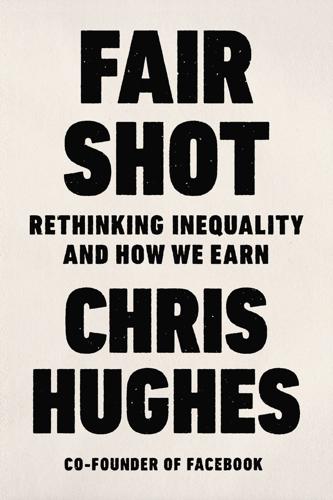
Fair Shot: Rethinking Inequality and How We Earn
by
Chris Hughes
Published 20 Feb 2018
The intent of the demonstration is to tell the stories of what everyday Americans do when they are given a hand up through cash. It’s only a first step. In the long term, philanthropy can’t meet the scale of the challenge we face. If you took all of the money that billionaires have committed through the Giving Pledge (Bill Gates and Warren Buffett’s call to the wealthy to pledge to give away at least half of their wealth in their lifetimes), it would only fund a guaranteed income in America for a single year. Private philanthropy can be useful in the short term to spur experimentation and demonstrations of the idea, but to make the guaranteed income sustainable in the long term, public policy must change.
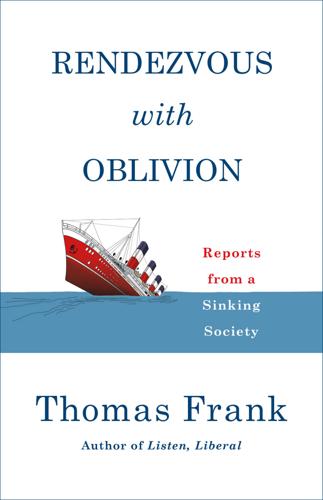
Rendezvous With Oblivion: Reports From a Sinking Society
by
Thomas Frank
Published 18 Jun 2018
At one of Warren Buffett’s gatherings of the superwealthy, according to a 2010 issue of Fortune magazine, a number of such inducements were discussed: “national recognition of great philanthropists (presidential medals, for example), or a film, or a philanthropy guidebook.” The idea Buffett’s group finally settled upon was to get billionaires to pledge to give 50 percent of their riches to charity. (What is now called the Giving Pledge has since been taken by more than 170 people.) Another approach would be to leverage the human accessories that are so much in vogue these days—in Hollywood, nothing says “I care” like adopting a war orphan. And so perhaps we can, with some deft cultural manipulation, make it equally rewarding for a billionaire to adopt, say, the entire blue-collar population of Rockford, Illinois.
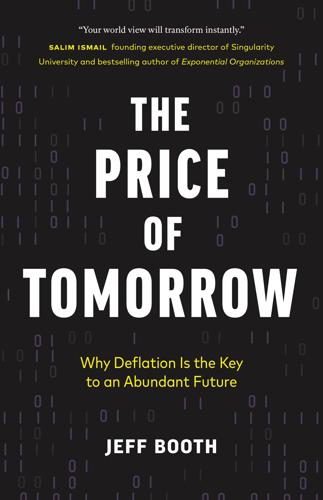
The Price of Tomorrow: Why Deflation Is the Key to an Abundant Future
by
Jeff Booth
Published 14 Jan 2020
It is easy to point at the wealthy and assign blame, but the focus should instead be on a broken system that reinforces radical inequality. In fact, many of the wealthiest families are aware of the very same risk to society and are intent on trying to fix it, either by entering the debate and making their voices heard and/or committing to philanthropy. The Giving Pledge, signed by 204 pledges at the time of writing, dedicates the majority of their wealth to giving back. But it shouldn’t even be necessary. The concentration of wealth has not been this high since the late 1920s. The world naturally becomes more unsafe when large amounts of people with increasing anxiety about their own economic future see incredible wealth creation in the hands of very few people.
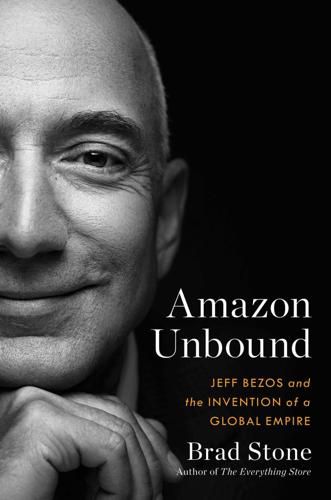
Amazon Unbound: Jeff Bezos and the Invention of a Global Empire
by
Brad Stone
Published 10 May 2021
As part of the settlement, he retained voting rights over her stock, though not after she sold it or gave it away—one of the reasons, investors had speculated, that Amazon might have explored the creation of a second class of stock the year before. She also retained their Seattle and L.A. homes and signed the Giving Pledge, a commitment to give away more than half her wealth. Over the course of 2020, she would donate almost $6 billion to organizations like food banks, community groups, and historically Black colleges, while posting a personal essay about her motivations—a departure from her reticent approach to promoting Bystander Revolution years before.
…
The Covid-19 crisis delayed that, and in the meantime, MacKenzie Scott surprised the world, first by speedily committing nearly $6 billion in unrestricted grants to various Black colleges and women’s and LGBTQ rights groups, and then by getting remarried to Seattle chemistry teacher Dan Jewett, who also signed the Giving Pledge. The juxtaposition with her ex-husband’s incipient philanthropic efforts was stark. Over the fall of 2020, Bezos and Lauren Sanchez started videoconferencing with climate and conservation groups. Executives at these organizations said that the couple asked insightful questions and earnestly solicited advice about how they could make a difference.
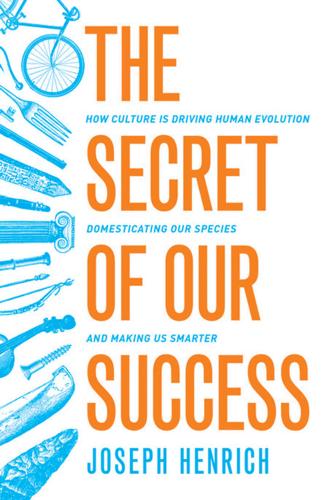
The Secret of Our Success: How Culture Is Driving Human Evolution, Domesticating Our Species, and Making Us Smarter
by
Joseph Henrich
Published 27 Oct 2015
Aside from approach, attention, and an open body posture, this pattern is not highly distinctive except in contrast to the other displays described above. The relevant emotions are admiration, awe, and respect not based on fear.24 Why Prestigious People Are Often Generous When asked by ABC’s Christiane Amanpour about how he got involved in the Giving Pledge, billionaire Tom Steyer replied, “The invitation to me was a phone call from Warren Buffett. If he thinks it’s a good idea, I start with the assumption it is a good idea.” Warren Buffett, known as the “Oracle of Omaha,” was ranked among the most admired and respected people in the world. His Giving Pledge asked billionaires to promise to give half of their wealth away, an amount totaling $600 billion.
…
That is, cultural evolution has sharpened up this link so that attending to who is the most magnanimous is sometimes the best way to figure out who, locally at least, is the most prestigious. Anthropologists call some of these traditional communities “big man societies” because men can increase their prestige with vast generosity.27 We don’t live in such a society (well, at least I don’t); however, as with the Giving Pledge, this strand of human nature does emerge in some important contexts. In controlled laboratory settings, behavioral experiments confirm the link between prestige and generosity. In one experiment, researchers paired individuals who had just participated in a trivia contest. The trivia contest aimed to create a minor status distinction between the players, since one player had received a gold star for his or her performance (high prestige) while the other did not (low prestige).
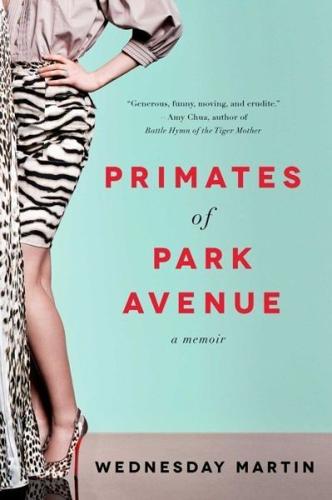
Primates of Park Avenue: A Memoir
by
Wednesday Martin Ph.d.
Published 1 Jun 2015
In a way, a woman’s participation in Mommynomics is a way to feel and be busy and useful. It is also an act of extravagance, a brag—“I used to work, I can, but I don’t need to.” But compare it to what some of their husbands have done and aspire to do—amass enough money not to merely quit work, but to take the “Giving Pledge,” a public avowal billionaires swear to give away half their wealth. Wives lunch with other women with children at Fred’s and Bergdorf Goodman while their silverback husbands move with ease among their watering holes—a few years ago, at the 21 Club, one could see Henry Kissinger, Roger Ailes, and William Safire, all seated within feet of each other, table hopping and reinforcing their world dominance.
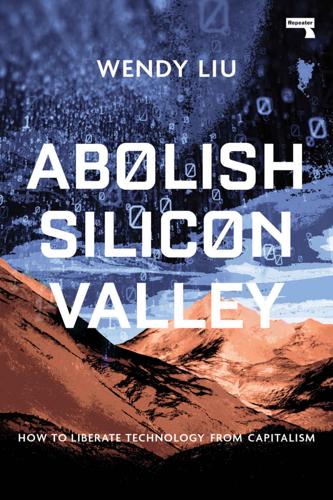
Abolish Silicon Valley: How to Liberate Technology From Capitalism
by
Wendy Liu
Published 22 Mar 2020
Thiel’s affiliation with Y Combinator ended soon after that under unclear circumstances, as reported by Ryan Mac for Buzzfeed News on November 17, 2017: “Y Combinator Cuts Ties With Peter Thiel After Ending Part-Time Partner Program”, at https://www.buzzfeednews.com/article/ryanmac/y-combinator-cuts-ties-with-peter-thiel-ends-part-time. 5 For a brief overview of incidents in this vein, see “The Ugly Unethical Underside of Silicon Valley” by Erin Griffith for Fortune, published December 28, 2016, at https://fortune.com/longform/silicon-valley-startups-fraud-venture-capital/. 6 See, for example, “Uber Drivers Speak Out: We’re Making A Lot Less Money Than Uber Is Telling People” by Maya Kosoff for Business Insider, published October 29, 2014, at https://www.businessinsider.com/uber-drivers-say-theyre-making-less-than-minimum-wage-2014-10. 7 See, for example, “Inside an Amazon Warehouse, the Relentless Need to ‘“Make Rate’”” by Hamilton Nolan for Gawker, published June 6, 2016, at https://gawker.com/inside-an-amazon-warehouse-the-relentless-need-to-mak-1780800336. 8 See, for example, “Foxconn Working Conditions Slammed bBy Workers Rights Group” by Steven Musil for CNET, published May 30, 2012, at https://www.cnet.com/news/foxconn-working-conditions-slammed-by-workers-rights-group/. 9 Several tech billionaires have signed “The Giving Pledge”, a movement led by Bill Gates and Warren Buffet. These billionaires are essentially making a non-binding commitment to give away most of their ill-begotten wealth to philanthropic causes as opposed to, I don’t know, spending it on private jets or burning it or whatever. It’s not the worst thing they could do, but it’s not exactly the pinnacle of sacrifice that it’s often made out to be.
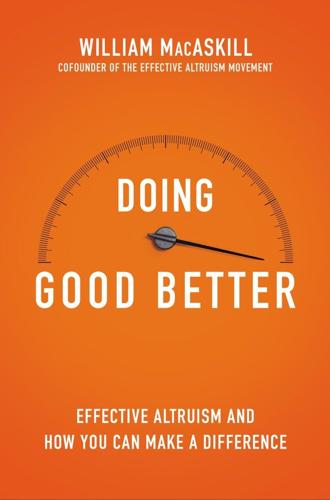
Doing Good Better: How Effective Altruism Can Help You Make a Difference
by
William MacAskill
Published 27 Jul 2015
Second, if you involve yourself in the effective altruism community, then you can mitigate this concern: if you have many friends who are pursuing a similar path to you, and you’ve publicly stated your intentions to donate, then you’ll have strong support to ensure that you live up to your aims. Finally, there are many examples of people who have successfully pursued earning to give without losing their values. Bill Gates and the other members of the Giving Pledge (a group of billionaires who have pledged at least 50 percent of their earnings to charity) are the most obvious examples, but there are many more. When Jim Greenbaum graduated from the University of Virginia in the early 1980s, his primary aim was to make as much money as he could in order to use that money to make the world a better place.
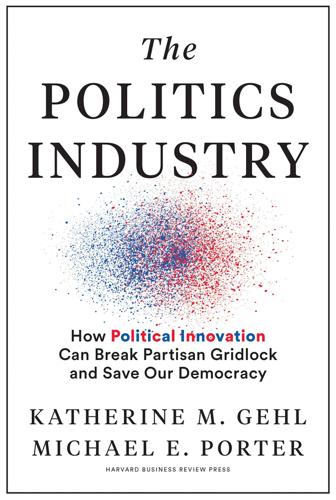
The Politics Industry: How Political Innovation Can Break Partisan Gridlock and Save Our Democracy
by
Katherine M. Gehl
and
Michael E. Porter
Published 14 Sep 2020
Just remember the words of Margaret Mead: “Never doubt that a small group of thoughtful, committed citizens can change the world; indeed, it’s the only thing that ever has.” Connect with us at www.GehlPorter.com and we can help you get started. Fund America has a great philanthropic tradition. Since Warren Buffett and Bill and Melinda Gates created the Giving Pledge, hundreds of the world’s wealthiest individuals have pledged to donate at least half of their wealth to charitable causes, adding up to hundreds of billions of dollars. And that’s just the tip of the iceberg. Annual charitable donations from all Americans reached $410 billion in 2017—and that doesn’t count the time and energy Americans volunteered to countless causes tackling a wide array of social challenges.
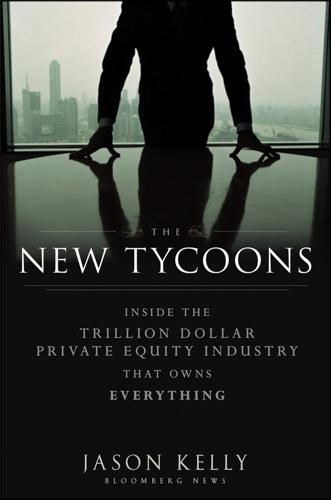
The New Tycoons: Inside the Trillion Dollar Private Equity Industry That Owns Everything
by
Jason Kelly
Published 10 Sep 2012
“Clearly it made more of an impression on Pete than it did me,” he said, but he admitted to plotting a global empire nearly from the beginning. The wealth generated by realizing that vision has turned Rubenstein into one of the more prominent philanthropists during the past decade. He’s a signee of the Giving Pledge, the movement founded in 2010 to get wealthy people to commit to giving away at least half their money. Created by billionaires led by Warren Buffett and Bill Gates, the Pledge has drawn the support of families and individuals including investors Carl Icahn, Julian Robertson, and Ronald Perelman.
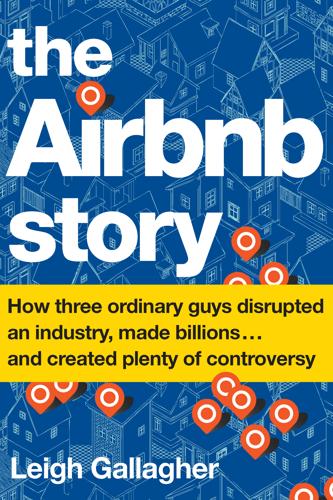
The Airbnb Story: How Three Ordinary Guys Disrupted an Industry, Made Billions...and Created Plenty of Controversy
by
Leigh Gallagher
Published 14 Feb 2017
The founders are settling into their new roles and getting ready for the next leg of the wild ride they’ve been on, with the company’s big pivot. They have started to come to terms with the kind of responsibility that comes with the wealth they have amassed (each of the three is said to be worth $3.3 billion). They have all joined the elite group of billionaires who have signed the Giving Pledge, the campaign created by Warren Buffett and Bill and Melinda Gates to encourage the überwealthy to commit to giving away the majority of their wealth in their lifetimes. In addition to his new role at the company, Blecharczyk has another responsibility, as a father; he and his wife have a toddler.
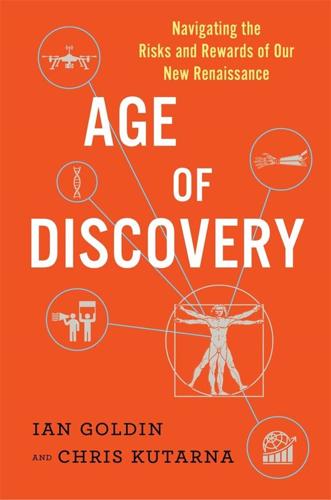
Age of Discovery: Navigating the Risks and Rewards of Our New Renaissance
by
Ian Goldin
and
Chris Kutarna
Published 23 May 2016
For example, from 2008 to 2011, when global wealth swelled by some $22 trillion, annual philanthropy destined for the developing world from 23 major developed countries plus Brazil, Russia, India and China nudged up only $4 billion (from $55 to $59 billion per year).76 Some among the rich do recognize the debt they owe to society. Efforts like the Giving Pledge, a public vow made by participating billionaires to give more than half their wealth away, are helping shift norms of private patronage in the right direction. But too many still do not fully recognize this debt, and it will take pressure from the rest of society to help them do so. Reserve your respect for givers.
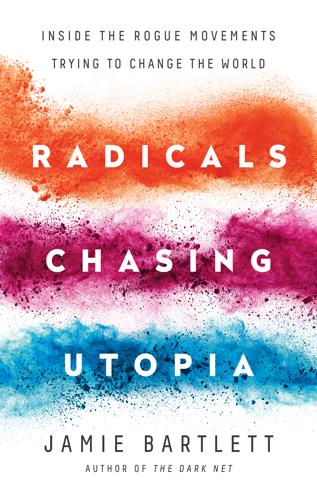
Radicals Chasing Utopia: Inside the Rogue Movements Trying to Change the World
by
Jamie Bartlett
Published 12 Jun 2017
In 2005 the MIT Technology Review offered a $20,000 prize to any molecular biologist who could prove to a panel of independent judges that de Grey’s theory of rejuvenating biotechnology was ‘so wrong that it was unworthy of learned debate.’ No one has yet claimed the prize. Ricky Piper, ‘10 things we learned from Liz Parrish’s Reddit AMA’, Life Mag, 2015, http://lifemag.org/article/10-things-we-learned-from-liz-parrish-s-reddit-ama. 15. Of the nineteen tech entrepreneurs or investor billionaires who have signed the Giving Pledge to donate half their wealth, at least half are financing healthcare and medical research. Ben Popper, ‘Understanding Calico: Larry Page, Google Ventures, and the quest for immortality’, The Verge, 2013, http://www.theverge.com/2013/9/19/4748594/understanding-calico-larry-page-google-ventures-and-the-quest-for. 16.
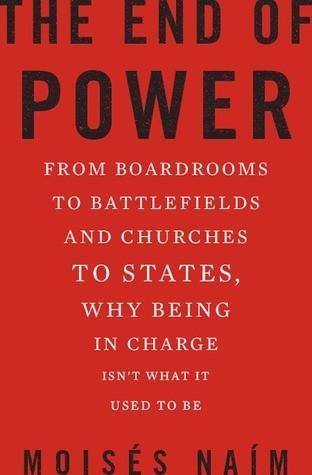
The End of Power: From Boardrooms to Battlefields and Churches to States, Why Being in Charge Isn’t What It Used to Be
by
Moises Naim
Published 5 Mar 2013
During the 1990s, for example, international giving by American individuals and institutions quadrupled. It doubled again from 1998 to 2007, reaching $39.6 billion, a sum more than 50 percent larger than the World Bank’s total annual commitment. And charity is also getting a new face, whether the eighty-one American billionaires who as of 2012 had signed the Giving Pledge to give away most of their fortunes, the hundreds of thousands of cellphone users who texted millions of dollars in earthquake relief donations to Haiti, or the legions of “venture philanthropists” who gather in workshops, make field visits to inner-city schools or rural projects overseas to inspect firsthand the projects they fund, and exchange ideas and best practices in forums online.
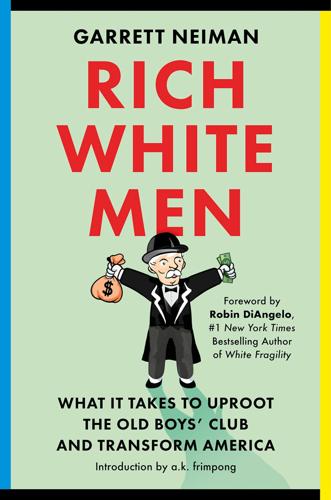
Rich White Men: What It Takes to Uproot the Old Boys' Club and Transform America
by
Garrett Neiman
Published 19 Jun 2023
Many rich white men credit luck with enabling at least some of their success, too. There are exceptions—like Elon Musk, who tweeted “Working 16 hours a day, 7 days a week, 52 weeks in year and people still calling me lucky”12—but most rich men I know factor in luck. When I reviewed the two hundred letters written by billionaires who signed the Giving Pledge—an initiative started by Bill Gates and Warren Buffett that asks the world’s wealthiest individuals and families to dedicate at least half of their wealth to charitable causes—participants reference how luck contributed to their success more than sixty times. “My wealth,” Warren Buffett writes in his Giving Pledge letter, “has come from a combination of living in America, some lucky genes, and compound interest.”13 Other billionaires echo similar sentiments.
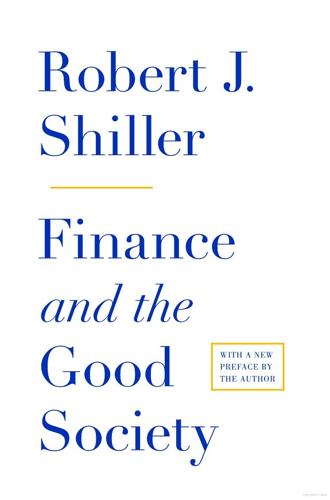
Finance and the Good Society
by
Robert J. Shiller
Published 1 Jan 2012
There followed the Carnegie Institution (dedicated to scienti c research) in 1902 at age sixty-seven, the Carnegie Endowment for World Peace in 1910 at age seventy- ve, and the Carnegie Corporation of New York (to advance education) in 1911 at age seventy-six. He died at the age of eighty-three. In our own time, perhaps inspired by Carnegie, Bill Gates and Warren Bu ett, currently the two richest men in the United States according to the Forbes 400 survey, have begun advocating what they call the “giving pledge.”6 Wealthy people are asked to pledge half of their wealth to philanthropy before they die. In 2010 they both traveled to China and invited fty of the wealthiest people in that country to meet with them to hear about the pledge. The Bill and Melinda Gates Foundation gives to a number of international causes.
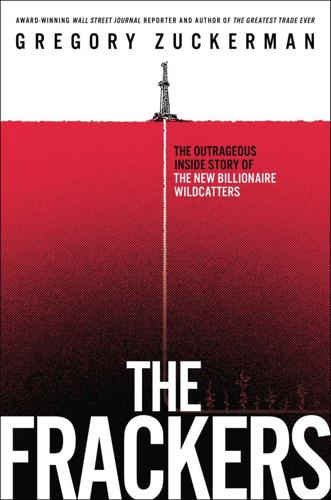
The Frackers: The Outrageous Inside Story of the New Billionaire Wildcatters
by
Gregory Zuckerman
Published 5 Nov 2013
“We can be the Saudi Arabia of oil and natural gas in the twenty-first century,” he told several media outlets. It burned Hamm up that few believed him. In the fall of 2011, he was invited to the White House for a dinner for Bill Gates, Warren Buffett, and others who, like him, had promised to give the bulk of their wealth to charity as part of the Giving Pledge. When it was Hamm’s turn to talk to President Obama, Hamm said there was a “revolution” going on in the oil and gas industry, one that could help the nation replace the crude it was getting from OPEC. Obama didn’t seem very impressed, Hamm says. The president told Hamm that oil and gas would remain important for the next few years, but “we need to go on to green and alternative energy.”
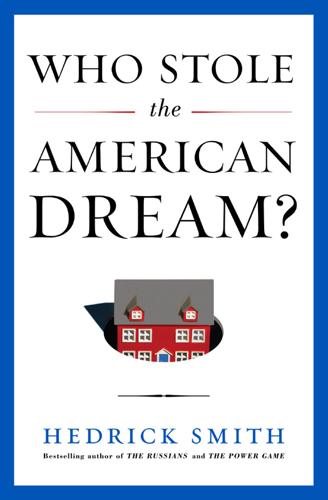
Who Stole the American Dream?
by
Hedrick Smith
Published 10 Sep 2012
See also Bloomberg News Poll, December 4–7, 2010, http://media.bloomberg.com. 47 Republicans had fallen under the spell Bruce Bartlett, “Supply-Side Economics, R.I.P,” Capital Gains and Games blog, October 10, 2009, http://www.capitalgainsandgames.com. 48 “The rich are always going to say” “The Giving Pledge,” ABC This Week, November 28, 2010. 49 “We kept the coalition in business” Van Dongen, interview, April 25, 2011. 50 Van Dongen’s Tax Relief Coalition U.S. Chamber of Commerce, “Jobs for America: An Open Letter to the President of the United States, the United States Congress, and the American People,” July 14, 2010, http://www.uschamber.com. 51 All meant “Bush Scores Win on Tax Cuts,” CQ Almanac 2003 (Washington, DC: Congressional Quarterly, 2004), http://www.cqpress.com; Edmund L.
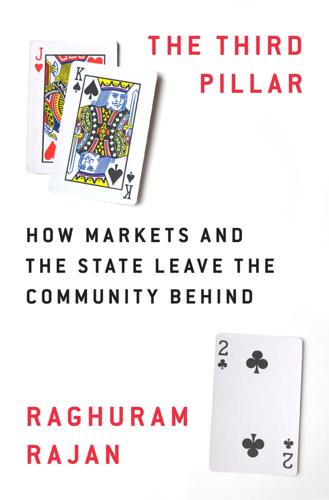
The Third Pillar: How Markets and the State Leave the Community Behind
by
Raghuram Rajan
Published 26 Feb 2019
If the distribution of wealth becomes skewed towards a very few, the few may decide their accumulation of wealth unseemly and find ways to give it back. Society will aid that process by muting its applause for the captains of industry who only accumulate, while increasing it for those who distribute wisely. Indeed, this already seems underway with the Giving Pledge, where billionaires across the world have pledged to give away at least half their wealth. Even if values do not change, the feared outcome of mass poverty amid productive plenty will not come to pass if we maintain our democracy, and the separation between behemoth corporations and the leviathan state.
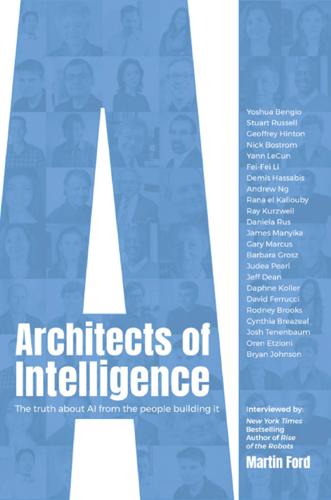
Architects of Intelligence
by
Martin Ford
Published 16 Nov 2018
OREN ETZIONI: I’m really lucky in that I’ve had a lot of contact with Paul over the years. When I was first contemplating this position, I read Paul’s book Idea Man, which gave me a sense of both his intellect and his vision. While reading Paul’s book, I realized that he’s really operating in the tradition of the Medicis. He’s a scientific philanthropist and has signed the Giving Pledge that was started by both Bill and Melinda Gates and Warren Buffett, where he’s publicly dedicated most of his wealth to philanthropy. What drives him here is that he’s been fascinated by AI and the questions around how we can imbue semantics and an understanding of text in machines since the 1970s.
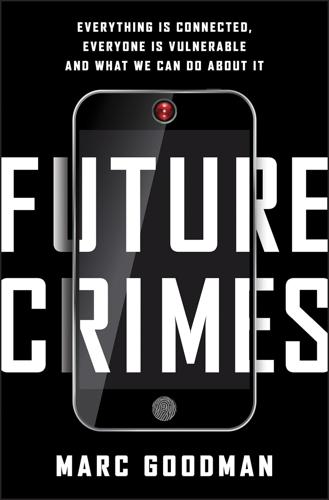
Future Crimes: Everything Is Connected, Everyone Is Vulnerable and What We Can Do About It
by
Marc Goodman
Published 24 Feb 2015
But they are not alone, and there is indeed a new breed of “techno-philanthropists” out there, committed to using their wealth to better the world. eBay’s first president, Jeff Skoll, has worked tirelessly crusading against pandemics and nuclear proliferation, endowing his foundation with nearly $1 billion of his own funds. Elon Musk, Pierre Omidyar, Paul Allen, Steve Case, Larry Ellison, Mo Ibrahim, Sir Richard Branson, and Michael Bloomberg have all incredibly generously signed “The Giving Pledge,” committing to dedicate the majority of their wealth to philanthropy. These individuals have personal passions that they are actively supporting with their wealth, ranging from good governance to child development. Given that most of those above earned all or part of their wealth working in technology, funding an XPRIZE focused on this topic would make great strides in combating the emerging technological threats before us and, with their expertise in the field, could make a huge difference.
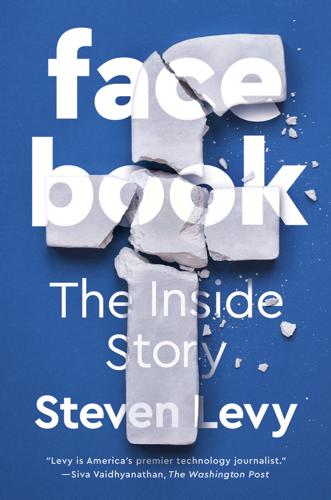
Facebook: The Inside Story
by
Steven Levy
Published 25 Feb 2020
After the Facebook IPO made Zuckerberg one of the richest people in the world, with those millions replaced by billions, he and Chan, now his wife, began to explore philanthropy with more urgency. He tapped his friendship with Bill and Melinda Gates, whose eponymous foundation spent billions on world hunger, education, and social justice. They had been urging zillionaires to sign the Giving Pledge, a non-binding commitment to donate at least half their riches to the social good: Zuckerberg signed up. And then, with the Gateses as role models, he and Chan began their own philanthropic organization. They would focus on health, education, and social justice. The Chan Zuckerberg Initiative has one big difference from the non-profit Gates Foundation.
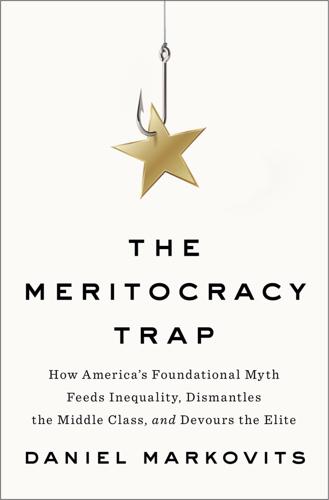
The Meritocracy Trap: How America's Foundational Myth Feeds Inequality, Dismantles the Middle Class, and Devours the Elite
by
Daniel Markovits
Published 14 Sep 2019
Moreover, even these consequences would have followed only if the regnant legal order governing titles and property permitted the divestiture at all, rather than entailing the estate to guarantee that it remained in the family. See Langbein, “Twentieth-Century Revolution,” 725–26. upon their deaths: “History of the Pledge,” The Giving Pledge, accessed October 12, 2018, https://givingpledge.org. Signatories include Bill Gates, Warren Buffett, Mark Zuckerberg, Larry Ellison, and Michael Bloomberg, all in the top ten of 2018’s Forbes 400. Kroll and Dolan, “Forbes 400.” An advertisement for the Wall Street Journal: “People who don’t have time make time to read the Wall Street Journal,” Wall Street Journal, accessed October 12, 2018, www.wsj.com/maketime.